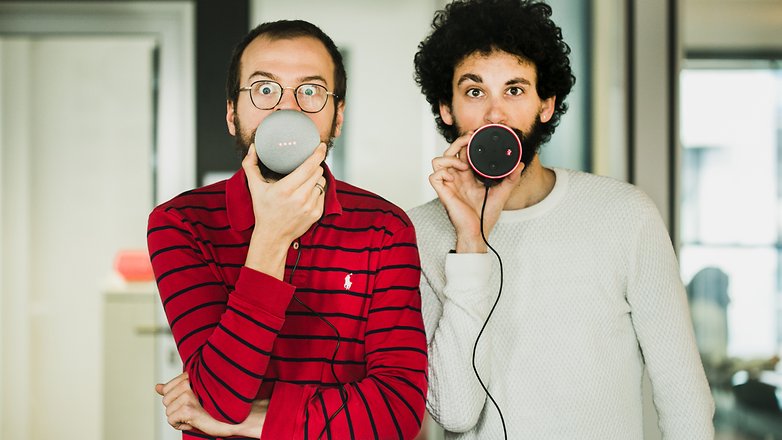On Wednesday, my colleague Benjamin Lucks opened our newsletter by talking about the technology we don't see, that is, the integration of technology services and products into our routine in an organic way. It got me thinking about the automation experience we have today with virtual assistants or voice assistants, as services like Google Assistant, Alexa, Siri, Cortana and others.
Integrating voice assistants into everyday life, even in 2021, is still a task that demands energy from the side of those using the technology. In other words, patience is required. In particular, because it is not an organic or invisible action; rather, it is an active one, which we do using voice commands.
In addition to the limitations of understanding virtual assistants, on mobile phones or smartwatches, for example, we have activation errors or false acceptances, which end up causing a bad experience and, in some cases, can be considered an invasion of privacy. This causes many people to disable such features and even forget they exist.
Personally, I am a big fan of using technology without physical interaction, but by voice. I use Google Assistant on mobile, have a Google Nest mini and Google Nest Hub 2 at home, use Siri on the Apple Watch, and am a big fan of Alexa in my living room. I don't see a need to use Cortana on PC or Siri on Mac yet, but I believe that in the future, voice extension may play an important role in computer use.
But, what about you?

How often do you say "Ok, Google" or "Alexa"?
Voice assistants already appear in TV ads, movies and series, and of course they're most likely integrated into the mobile phone or computer you're using right now to read this text. So they are no longer just products of the fertile minds of science fiction screenwriters. But are they really popular?
According to Google, Google Assistant is already used on more than 1 billion devices, in 80 countries and in more than 30 languages. These devices include smart speakers, smartwatches, headsets, smart TVs and, of course, smartphones. According to the company, 76% of those devices' owners use some form of AI on a weekly basis – source: Google.
With that in mind, I declare our poll for this week open: How often do you give "Ok, Google" or "Alexa" commands? Here, you can consider any form of interaction with personal assistants, whether on mobile or smartwatch, or on dedicated devices, such as Amazon Echo or Google Nest.
Which virtual assistant do you use?
I don't know about you, but I have a preference for brands and services, so my choices are based on my experience with certain brands and products. So my virtual assistants can be boiled down to just two: Google and Amazon. My interaction with Siri is almost insignificant when compared to Google Assistant and Alexa.
I try to integrate Google Assistant into my daily life in the least intrusive way possible, so many of my experiences with the service end up being limited, especially on mobile, while Alexa, which is not installed on my smartphone, for example, ends up being limited to automation or search routines. And both services contribute to making my home smarter.
In a very particular way, Alexa today delivers a more natural conversation experience, whereas Google Assistant leans sometimes more towards the machine side, performing actions only. However, that doesn't mean that I really have a preference for one or the other, they both have a relevant function for me.
However, in a survey released by eMarketer in February 2020, Alexa, present in Amazon's smart speakers, appears as dominant in one of the largest markets in the world, the United States. According to the analyst firm's estimates, this year Amazon Echo will be the brand of choice for 70% of all smart speaker owners in the US. In other words, there's very little left for Google, Apple and other companies of that pie.
So my next question is regarding your preferences: between Google Assistant, Alexa, Siri, Bixby and Cortana, who do you stick with?
What do you do with your virtual assistant?
Finally, I would still like to know for what purposes you use and interact with a personal assistant: research, home automation, consumption of news and other media, for family entertainment or even to send messages while driving?
As always, I would like to thank in advance all the people who will participate in this survey and share ideas in the comments. I wish each and everyone a great weekend and set up a meeting on Monday to reveal and analyze the results of this poll.
Read More Open link https://ift.tt/3y7MpvC
0 Response to "Poll of the week: Which virtual Assistant do you use?"
Posting Komentar